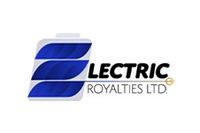What Does Volkswagen's Electric Car Mean for Resource Investors?
Andrew Miller of Benchmark Mineral Intelligence shares his thoughts on what Volkswagen’s electric vehicle announcement could mean for demand for the raw materials needed to make electric vehicle batteries.
It’s only been a few months since Volkswagen’s (ETR:VOW3) emissions cheating scandal shocked investors, but predictions that the auto manufacturer could move towards electric vehicles already look to be coming true.
According to Fortune, Volkswagen is planning to unveil an electric concept car at the Consumer Electronics Show in Las Vegas this January. And it isn’t the only car company that’s made an electric vehicle-related announcement lately. Audi (ETR:NSU) and Porsche (ETR:PAH3) — both owned by Volkswagen — have also recently announced plans to move into the market.
For Andrew Miller of Benchmark Mineral Intelligence, the news from Volkswagen wasn’t much of a surprise. Like many, he believes that such an announcement was to be expected following news of the company’s diesel emissions scandal in September.
For those that missed it, Volkswagen was caught using defeat devices in engines to cheat on its vehicle emissions tests in the US. The devices detected when cars were being tested, allowing them to put out lower emissions in order to pass tests, but to pollute more than regulations allow when operating normally.
Eventually, Volkswagen admitted to using the devices on roughly 11 million vehicles worldwide. A number of market watchers, including Robin Goad of Fortune Minerals (TSX:FT), suggested at the time that the scandal would accelerate the shift towards hybrid and electric vehicles that has been in the works for some time. In turn, the change is expected to eventually drive an increase in demand for lithium-ion batteries and the raw materials required to make them.
Miller agrees that Volkswagen’s entry into the electric vehicle space will add to raw material demand, albeit not anytime soon. “It will take them time to develop their electric offerings, and therefore we wouldn’t expect their plan to have a direct impact on raw material demand in the short term,” he said, adding that companies such as Volkswagen that are new to the market will have to play catch up with competitors such as Tesla Motors (NASDAQ:TSLA), GM (NYSE:GM) and BMW (ETR:BMW).
That said, Miller added that electric vehicle announcements from auto majors will eventually add pressure to already strained future battery material supply chains. “Many existing battery producers have yet to answer where they will source material for their expansions,” he explained. “The introduction of other auto majors into the space will only tighten the supply outlook for battery raw materials in the longer term.”
To be sure, while Volkswagen’s shift to electric vehicles may have been catalyzed by its troubles with diesel in September, as mentioned above, the move has been a long time coming. Miller sees it as part of a growing trend.
“[T]his just adds to the growing momentum towards the electrification of transport, which we expect to really start being felt upstream over the coming two to three years,” he said.
Chris Berry of House Mountain Partners and the Disruptive Discoveries Journal agreed. “This Volkswagen news along with Tesla looking to hire 1,600 people, Faraday Future announcing its own factory in North Las Vegas, and GM announcing a multi billion dollar investment in EV manufacturing only add weight to the move towards vehicle electrification in my opinion,” he said.
Certainly, interested investors will be keeping an eye out for the unveiling of Volkswagen’s contribution to the electric vehicle space in January.
Securities Disclosure: I, Teresa Matich, hold no direct investment interest in any company mentioned in this article.

